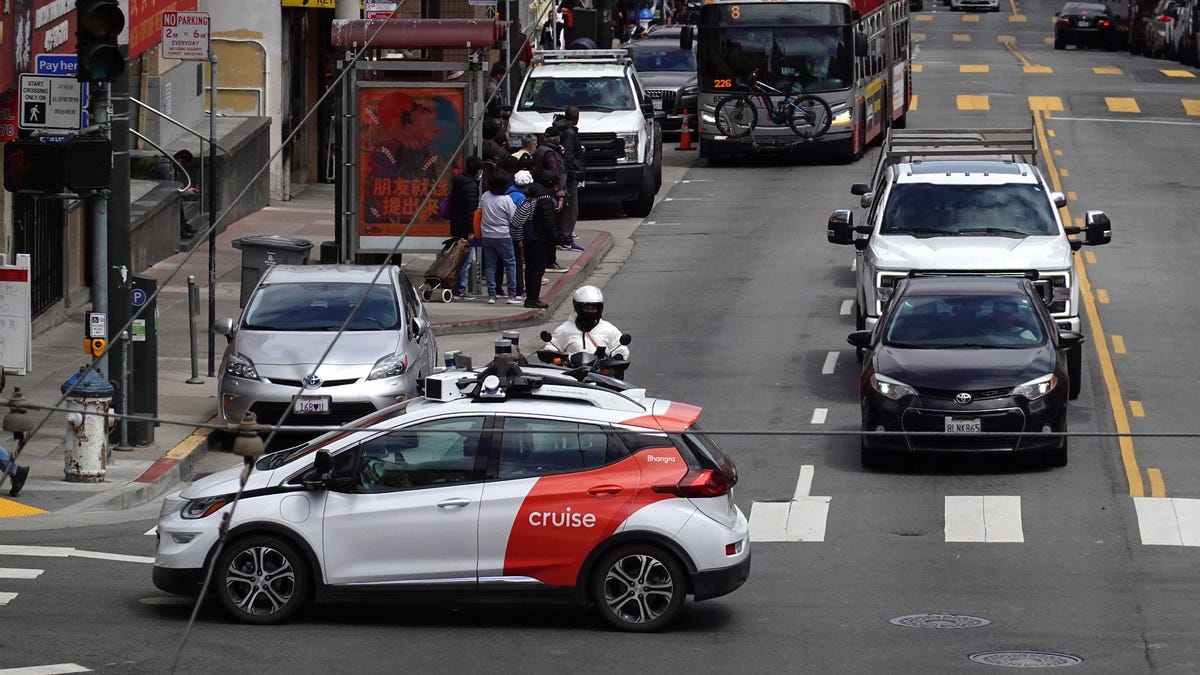Californians have had enough of self-driving cars running roughshod over two of their largest cities, and now their legislature is doing something about it. California Senate Bill 915 could allow cities to have a say in what happens on their own streets. Pretty novel idea, huh?
Right now, there are only two regulatory bodies can approve self-driving car permits in the Golden State: the California Department of Motor Vehicles and the California Public Utilities Commission. Both continue to approve expanding robotaxi operations in Los Angeles and San Francisco. Cities, and their citizens, have had to just put up with their streets being turned into science experiments for private companies. But a new bill under consideration in California’s senate would put a stop to the unrestricted self-driving testing, as KTUV explains:
California Senate Bill 915 proposes to empower cities to issue their own local permits for self-driving car companies.
Additionally, it would enable local governments to impose limitations on the number of self-driving cars allowed to operate simultaneously and establish operational regulations.
Moreover, cities and counties would be authorized to impose fees or service charges to fund the enforcement of their local regulations.
The bill, sponsored by State Senator Dave Cortese of San Jose, has garnered support from various local transportation agencies, local Teamsters unions, and U.S. Senate candidate Adam Schiff.
The bill has been in the works for a while. It was introduced by State Senator Dave Cortese as a way to bypass a loop hole in state law shortly after the California DMV approved Waymo’s expansion to San Francisco and Los Angeles suburbs, according to ABC7:
Senator Cortese aims to embrace new wave of technology, but wants to pump the brakes on the current regulations — or lack thereof.
“We’ve never really had a system in this country. I mean from the Henry Ford days, where you just go out and experiment on the streets without traffic laws in place and without the kind of requirements that keep it safe,” Cortese said.
After seeing issues involving safety of these autonomous vehicles in places like San Francisco and Los Angeles, Cortese introduced Senate Bill 915 to steer driverless car safety into the hands of local governments, who currently have no influence.
Cortese says once the CPUC and DMV permits the cars to be on the roads, there are not enough accountability measures as piloted vehicles.
He believes putting local governments in charge of closing this loophole is best for safety.
“City councils and county boards of supervisors meet every week,” Cortese said. “They can craft an ordinance, they can come back and tweak that a month later, and they’re much more nimble than the state of California.”
While Cruise has drawn down its fleet following an incident where a pedestrian was dragged under the car (the DMV actually stepped in and banned the company from operating in San Francisco), Waymo gained approval to allow its vehicles to operate in the expanded area 24/7 in all kinds of weather. That’s despite some very well covered setbacks at both companies.
Because friends, things have not been going well for the autonomous car crowd, mainly made up of GM’s Cruise and Alphabet’s Waymo. There’s been pedestrians hurt (and then facts omitted to cover up that hurt), traffic snarled by confused robot cars and even a dog recognized and run over anyway. This has led to much consternation among Californians, who have resorted to everything from disabling self-driving cars with traffic cones and fire. Right now, self-driving taxis can’t even receive a ticket for their reckless behavior, because who would the cop ticket? The CPU?
It’s kind of crazy that the DMV and an overzealous CPUC can force the public to put up with this kind of crap in order for tech companies to figure out how to monetize their latest toy. The bill is finally getting the kinks addressed in committee, though no hearing is currently scheduled.

